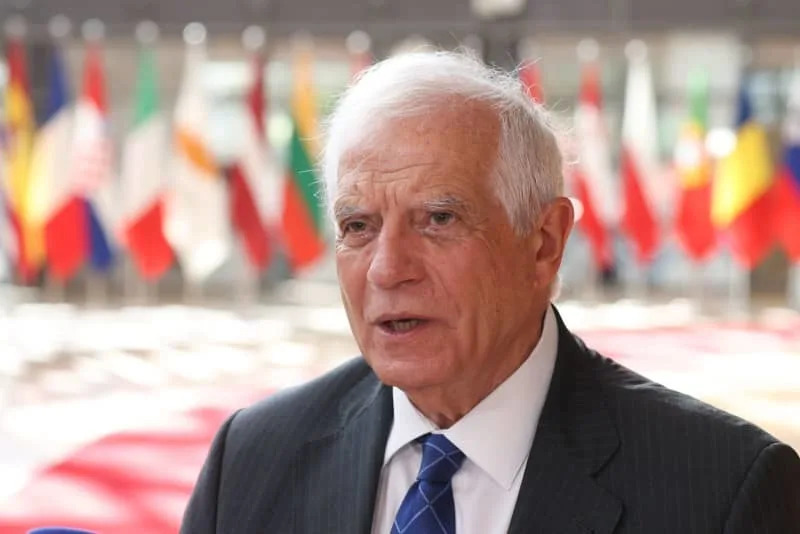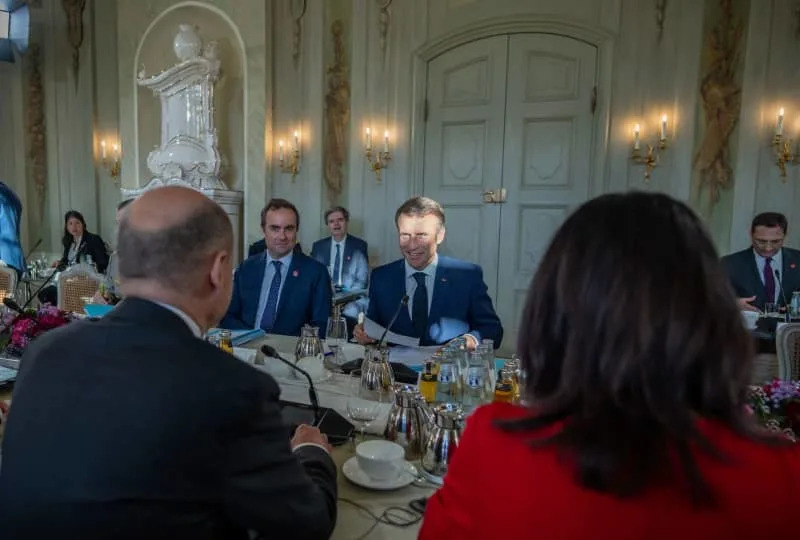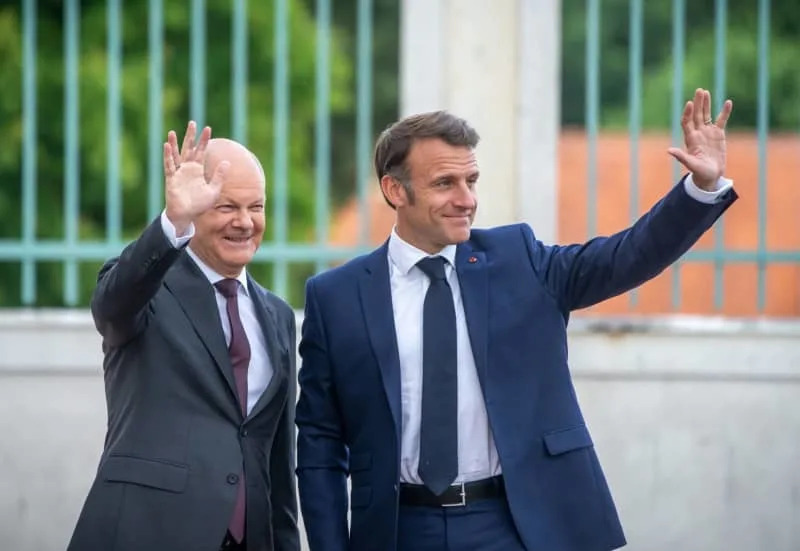Josep Borrell, EU High Representative for Foreign Affairs and Security Policy, speaks to the media upon his arrival to attend the EU defence ministers meeting.
European Union defence ministers meeting in Brussels on Tuesday were unable to reach a consensus on whether Ukraine should be allowed to use the weapons they supply to strike targets on Russian territory.
EU countries had already agreed to collectively provide military aid to Ukraine. But while some member states are supplying arms to Kiev with minimal restrictions, others do so on the condition that they'll be used within Ukrainian territory.
But the Ukrainian government says its forces need to be able to hit targets inside Russia, because Russia is launching attacks from over the border.
EU foreign affairs chief Josep Borrell said in a press conference after the meeting that the use of self-defensive strikes against military targets in Russian territory "is a legitimate action under international law when it is being used in a proportional manner."
"But it's also clear that it is a decision for each individual member state," he added.
"Nobody can prevent a member state to provide arms to Ukraine and let the Ukrainians use these arms to target military objectives inside the Russian territory," Borrell said. Similarly, "We cannot oblige them to do it."
EU ministers are also divided over whether military instructors from the EU should be allowed to provide training on Ukrainian territory, or whether Ukrainian conscripts should be brought to the EU for training.
AfriPrime App link: Absolutely risk free and FREE for download...
https://www.amazon.com/Africircle-AfriPrime/dp/B0D2M3F2JT
Some fear that putting "boots on the ground" in Ukraine would escalate their involvement in the war and increase the risk of direct conflict between Russia and the West.
"Some member states believe that the advantage of training people on the scenario of the war, avoiding people going back and forth has advantages," Borrell said. "Others believe that at the end, it's sending trainers, and the trainers are military."
However, the defence ministers were able to agree broad priorities for Europe's defence at the meeting on Tuesday.
Foremost among them was "EU's unwavering support to Ukraine." An EU press release said: "The EU will use all tools at its disposal."
Among these tools is an off-budget fund called the European Peace Facility, under which the EU has pledged €5 billion ($5.4 billion) worth of military aid to Ukraine. However, payments are being held up by Hungary. Each EU member state has a veto over the legislation required to begin payments.
The Dutch government announced on Tuesday that it will lead an initiative among some European countries to supply a Patriot air defence missile system to Ukraine.
"Ukraine, of course, is still under attack. Airstrikes continue," said Dutch Defence Minister Kajsa Ollongren as she arrived at the defence ministers' meeting. "Patriot systems are scarce in Europe and NATO, but we are now taking a step forward, so we will supply components of Patriot systems," she said.
A press release from the Dutch Ministry of Defence said "the Netherlands has identified which countries could offer additional Patriot parts and munitions" in order to deliver a complete system to Ukraine. It does not mention which countries are involved.
Jens Stoltenberg, secretary-general of the NATO military alliance, said air defence is Ukraine's "most urgent need." He said EU countries are "stepping up the delivery of ammunition, air defence systems, and in particular, the most advanced ones, the Patriot systems." Stoltenberg took part in the defence ministers' meeting on Tuesday.
Also on the defence ministers' priority list is strengthening the EU's industrial capacity to produce armaments and defensive technologies. The declaration "stresses the vital need to improve access to public and private finance" for the European defence industry.
In March, the European Commission proposed a €1.5 billion plan to strengthen Europe's armaments industry, in order that it might be better equipped to defend itself and to arm Ukraine.
Ministers also agreed to renew existing sanctions against the regime of Bashar Al-Assad in Syria, extending the expiry date by another year to June 1, 2025. The sanctions target 316 people and 86 organizations.

AfriPrime App link: Absolutely risk free and FREE for download...
https://www.amazon.com/Africircle-AfriPrime/dp/B0D2M3F2JT
Macron in favour of letting Kiev fire on army positions in Russia
French President Emmanuel Macron spoke out in favour of allowing Ukraine to use Western weapons to attack Russian positions on Russian territory, as the question was discussed elsewhere in Europe.
"We think that we should allow them to neutralise the military sites from which the missiles are fired and basically the military sites from which Ukraine is attacked," Macron said on Tuesday after talks with German Chancellor Olaf Scholz near Berlin.
"We should not allow other targets in Russia to be hit, civilian capacities of course, or other military targets," he added.
"Ukrainian soil is de facto being attacked from bases located in Russia. How do you explain to the Ukrainians that they must protect their cities?" said Macron. "If you tell them: 'You must not reach the point from which the missiles are fired’, then you are basically saying: ‘We are supplying you with weapons, but you must not defend yourselves’."
Macron also showed a map of the current frontline in Ukraine and underlined that France does not want any further escalation.
Scholz emphasised that Ukraine had every option under international law for what it was doing. "We have to say this explicitly: it is under attack and can defend itself."
The use of the weapons supplied by the US, France and Germany is subject to compliance with international law, he said. "This has worked well in practice so far and will certainly continue to do so," Scholz said.
Germany and other countries have linked the transfer of weapons to Ukraine to strict conditions for their use, stipulating they may not be used to attack targets in Russia, fearing otherwise NATO could otherwise become a party to the war.
However, NATO Secretary General Jens Stoltenberg recently proposed lifting restrictions on Ukrainian attacks.
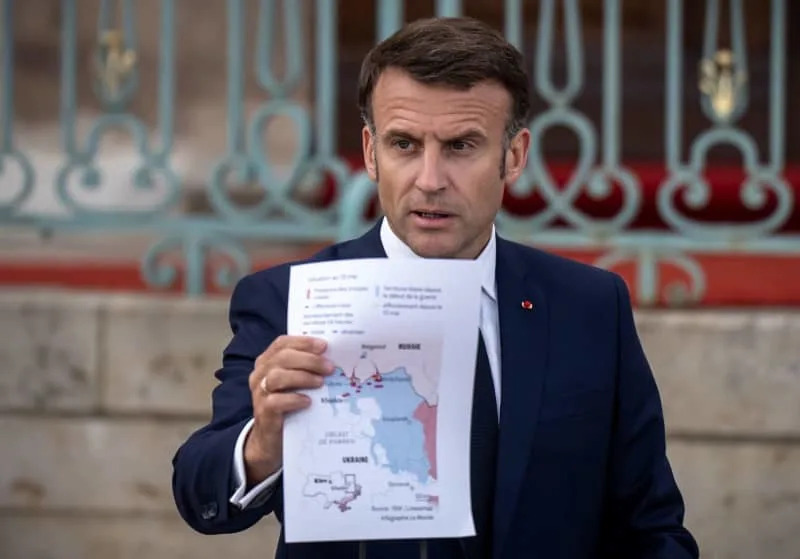
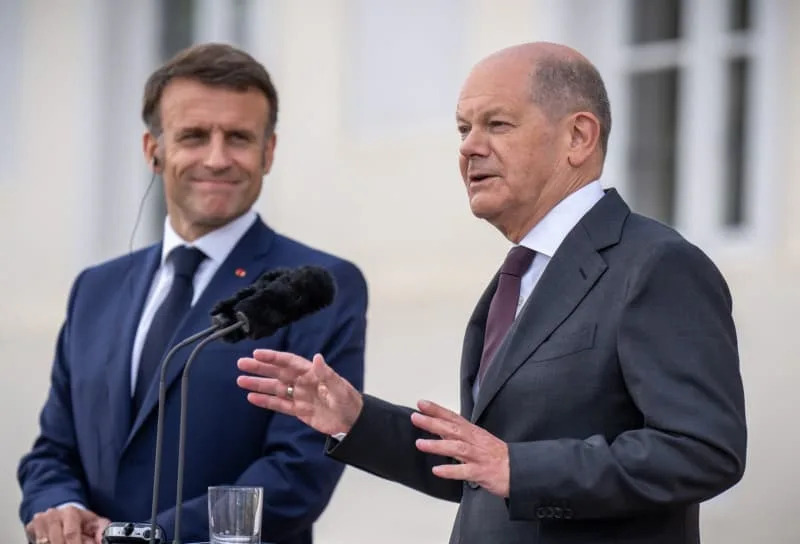
AfriPrime App link: Absolutely risk free and FREE for download...
https://www.amazon.com/Africircle-AfriPrime/dp/B0D2M3F2JT
Scholz and Macron demonstrate unity as Frenchman wraps up state visit
Germany's Chancellor Olaf Scholz (L) welcomes France's President Emmanuel Macron, to the Franco-German Ministerial Council in front of Schloss Meseberg, the German Government's guest house.
German Chancellor Olaf Scholz and French President Emmanuel Macron demonstrated unity on Ukraine and on the EU's Franco-German axis after government consultations Tuesday at the close of a three-day state visit by the French leader.
Scholz and Macron agreed that relations between the two countries are good and not in crisis, as some have said in the past.
"We will always agree and we are moving forward," Macron said at the Franco-German Council of Ministers on Tuesday.
Scholz spoke of the cohesion between Berlin and Paris during the coronavirus pandemic and their joint support for Ukraine. "That is why I am quite sure that the Franco-German friendship will continue in future, especially when it comes to economic decisions about the future," he said at the gathering at Meseberg Palace near Berlin.
"We always come to an agreement," he said, adding this had been true in the past and was a good forecast for the future.
Macron emphasized that there have always been claims of crises in recent decades but even if a proposal was made and no response came right away, it did not mean this was a crisis.
AfriPrime App link: Absolutely risk free and FREE for download...
https://www.amazon.com/Africircle-AfriPrime/dp/B0D2M3F2JT
Franco-German relationship
The Franco-German relationship has been problematic over the past two years of the Scholz government, with differences over Ukraine and over economic links with the United States and China.
While Macron has called for greater European autonomy and measures to protect the European economy from US and Chinese competition, Scholz has maintained Germany's traditional trans-Atlantic posture and sought to retain German access to Chinese markets.
Scholz has also been deeply sceptical of Macron's suggestion that European ground troops might become involved in the Ukraine War.
Support for Ukraine
Germany and France want the major Western industrialized nations to provide further billions in aid for Ukraine, Scholz said at a Franco-German government consultations.
The possibility of using interest income from the frozen assets of the Russian central bank was being examined, he said at Meseberg Palace.
"We want to give Ukraine access to billions in additional funding so that it can reliably provide its defence and thus further increase the security of the whole of Europe," Scholz said, adding that the aim is to pool and strengthen the efforts of the G7 states and the EU.
Let Ukraine target Russian positions on Russian territory: Macron
Macron spoke out in favour of allowing Ukraine to use Western weapons to attack Russian positions on Russian territory, as the question was discussed elsewhere in Europe.
"We think that we should allow them to neutralise the military sites from which the missiles are fired and basically the military sites from which Ukraine is attacked," Macron said after his talks with Scholz.
"We should not allow other targets in Russia to be hit, civilian capacities of course, or other military targets," he added.
Scholz emphasised that Ukraine had every option under international law for what it was doing. "We have to say this explicitly: it is under attack and can defend itself."
AfriPrime App link: Absolutely risk free and FREE for download...
https://www.amazon.com/Africircle-AfriPrime/dp/B0D2M3F2JT
More optimism
Earlier Tuesday, Macron called for more optimism and drive in Europe. "I believe we need to be more optimistic," he said in an acceptance speech after receiving the International Award of the Peace of Westphalia.
"Being optimistic as Europeans means being sure that Europe is the right answer." This refers to the major current challenges such as the war in Ukraine, the climate crisis and the threat to democracy.
"We are too divided, too slow and too timid in Europe, that is the reality," said Macron. The EU needs to simplify processes, act faster and invest more, he said. Europeans need to join forces on security and defence and establish joint armed forces, according to Macron.
The European states would also only have a chance of overcoming the climate crisis and developing future technologies and artificial intelligence together and not on their own, also in the face of competition from China and the United States, he said.
German President Frank-Walter Steinmeier praised Macron as a driving force behind European development and Franco-German friendship.
"You are not just a doer, you are an encourager. Where others speak of borders, you speak of horizons," Steinmeier said in Münster, where Macron was awarded the prize.
Competitive EU
In a joint article in the Financial Times published on Monday, Scholz and Macron called for a competitiveness agenda to be at the centre of the EU's next five-year term after the European elections in June.
Europe must be a strong global industrial and technological leader and at the same time realise its goal of making the EU the first climate-neutral continent, according to the article.
In order to fulfil these ambitions, the EU needs "more innovation, more single market, more investment, more level playing field and less bureaucracy." Together, they will work to strengthen the EU's sovereignty and reduce critical dependencies, the leaders wrote.
Scholz and Macron called for the EU's technological capabilities to be strengthened by promoting cutting-edge research and innovation as well as the necessary infrastructure.
One of Europe's greatest strengths is the single market, which enables companies to develop innovative products and services, grow and compete while ensuring high standards, they wrote.
"We have to make full use of and significantly accelerate existing EU instruments, from important projects of common European interest to the role of public procurement, considering a more strategic approach in relevant sectors, and to modernise our competition rules in view of global competitiveness," the leaders wrote.
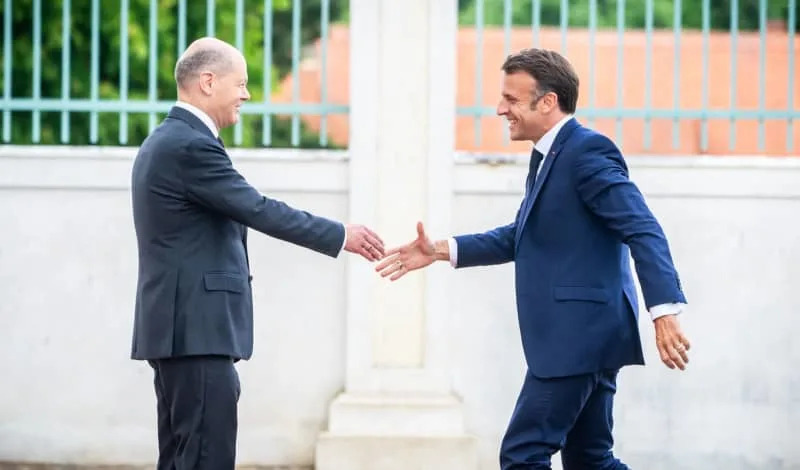
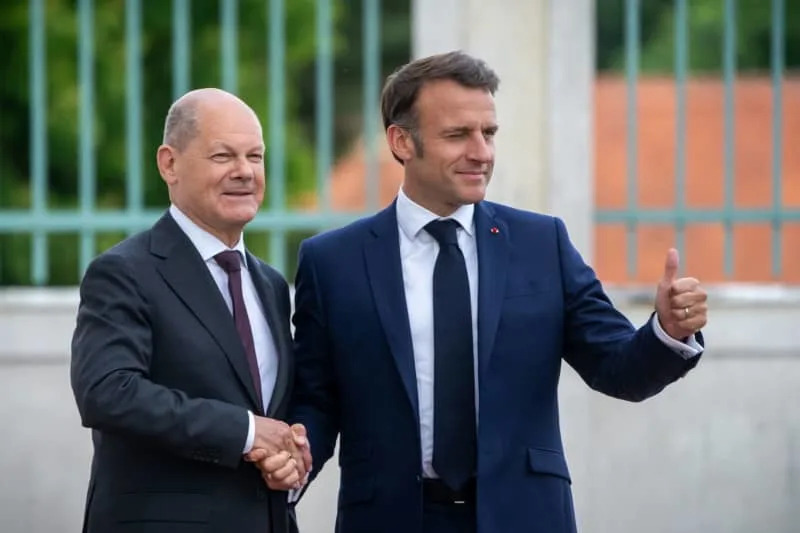
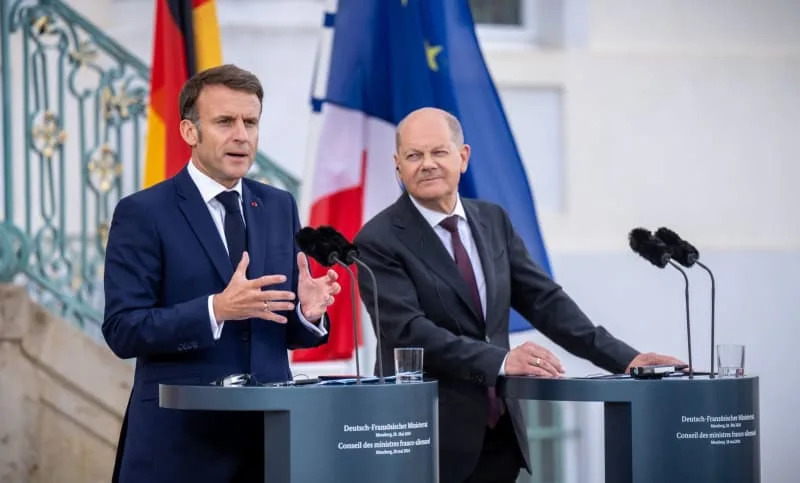
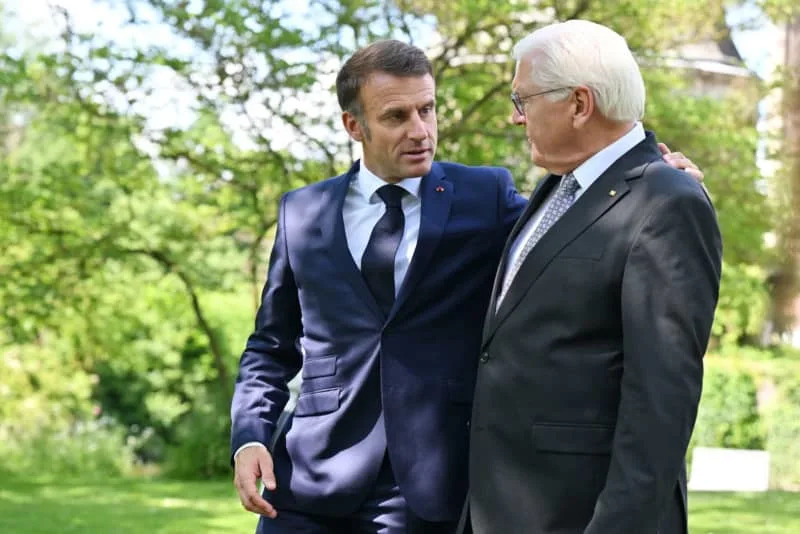

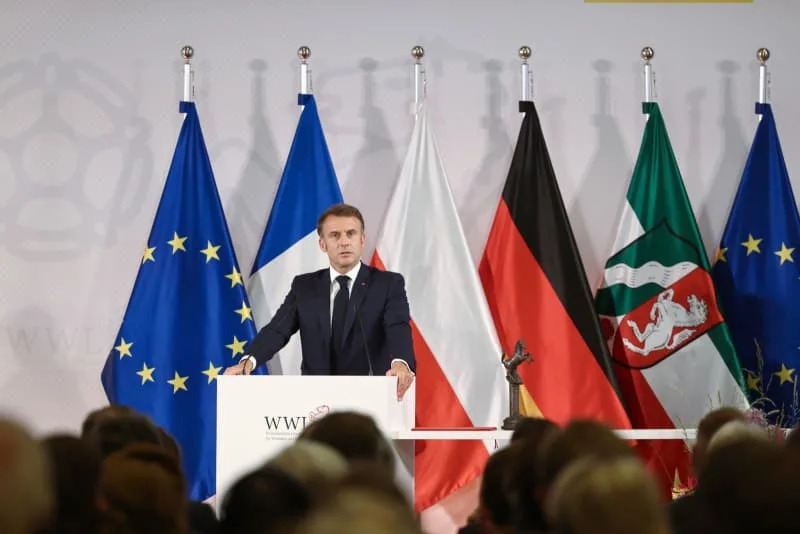
AfriPrime App link: Absolutely risk free and FREE for download...
https://www.amazon.com/Africircle-AfriPrime/dp/B0D2M3F2JT
Putin warns of 'serious consequences' if Western arms strike Russia
President Vladimir Putin said Tuesday that there would be "serious consequences" if Western countries allowed Ukraine to use their weapons to strike targets in Russia, as sought by Kyiv.
The warning came as French President Emmanuel Macron said Kyiv should be allowed to "neutralise" Russian military bases from where Kremlin troops are firing missiles into Ukraine, and as President Volodymyr Zelensky urged the world not to tire of the war.
Putin's comments came after some NATO members as well as the alliance's chief Jens Stoltenberg have called to allow Ukraine to use their arms to step up attacks on Russian soil, after more than two years of war.
"This constant escalation can lead to serious consequences," Putin said during a visit to Uzbekistan.
"In Europe, especially in small countries, they should be aware of what they are playing with," he said, noting that many European countries had "small territory" and a "dense population".
"And this factor, which they should keep in mind before they talk about striking deep into Russian territory, is a serious thing," he said.
He added that even if Ukraine's forces carried out the strikes, responsibility for them would lie with Western suppliers of the weapons.
Putin also said that while he believed Western military instructors were already in Ukraine operating undercover as mercenaries, any move by countries to send them officially would be another "escalation" and "another step towards a serious conflict in Europe, towards a global conflict".
Ukraine's top commander announced Monday that talks were being held with France on sending military instructors to the country.
Putin warned that "we will do what we think is necessary regardless of who is on the territory of Ukraine".
AfriPrime App link: Absolutely risk free and FREE for download...
https://www.amazon.com/Africircle-AfriPrime/dp/B0D2M3F2JT
EU foreign affairs chief Josep Borrell said after a meeting of EU defence ministers in Brussels that European countries remained split on sending military instructors to Ukraine.
Countries including Germany oppose taking a step they fear could potentially drag them closer to direct conflict with a nuclear-armed Russia.
EU countries have trained 50,000 Ukrainian troops outside the war-torn country under a bloc-wide mission set up in 2022.
- June summit goal -
Zelensky has been pressing Western allies to provide longer-range missiles and other material for striking deeper into Russia in a bid to cripple its military and industrial capacity.
With the Russian assault now in its third year, Ukraine is also pleading for more weapons for its outgunned and outnumbered troops, notably seeking help to address its lack of air defence systems.
So far Kyiv's partners have demanded that their arms not be used to attack Russian soil, which Kyiv forces have instead been doing with local-made explosive drones.
But France's Macron said that "We think that we should allow them to neutralise military sites where missiles are fired, from where... Ukraine is attacked," but that "we should not allow them to touch other targets in Russia, and obviously civilian capacities".
Zelensky, on a European tour to keep arms and support flowing to his embattled country, urged the world not to get tired of the war, saying it would play into Russia's hands.
"It is very important for Ukrainians that the world does not get tired... that the world understands that it cannot get tired of the war launched by the aggressor," Zelensky said in Portugal during a tour of several European capitals.
"Otherwise there will be no justice, otherwise the world will change, otherwise the world will be changed by people like Putin," he said.
Zelensky is also trying to whip up support for a peace conference due to be held in Switzerland next month, without Russia, and on Tuesday urged US President Joe Biden to attend.
"If (Biden) is not present, it will be just like applauding Putin: personally applauding and doing so standing," Zelensky said at a press conference with Belgium's Prime Minister Alexander De Croo.
Putin is "very scared" of the peace summit aimed at agreeing the terms needed to end the conflict, Zelensky said, adding that "He has been trying to thwart this summit and continues to do so".
Kremlin spokesman Dmitry Peskov said any such conference was "hopeless" without Russia's participation.
AfriPrime App link: Absolutely risk free and FREE for download...
https://www.amazon.com/Africircle-AfriPrime/dp/B0D2M3F2JT
Macron vows to issue plan on sending military trainers to Ukraine
French President Emmanuel Macron aims to present a plan in the coming week on a possible deployment of French military trainers to Ukraine, as Kiev seeks to fend off Russia's attacks.
Macron plans to do so during the visit of Ukrainian President Volodymyr Zelensky to Normandy to commemorate the Allied landings in World War II, he said.
He will "speak very precisely at that time to announce what we are going to do," Macron said, referring to "uncoordinated and unfortunate communication" on the issue beforehand.
Ukrainian Defence Minister Rustem Umerov had said late Monday that negotiations with Paris on the issue were ongoing.
Hours earlier, the Ukrainian military's Commander-in-Chief Oleksandr Syrskyi said it was a done deal and France would begin training Ukrainian army personnel.
Kiev has been asking since February that Ukrainian soldiers no longer be sent abroad for training, but instead be trained in their own country, according to the Ukrainian Ministry of Defence.
Ukrainian soldiers have been receiving training in France and other European countries for some time but there has been much recent discussion of the possibility of sending Western military trainers to the war zone to provide more effective support for the Ukrainian army, though no official programmes have been established.
Macron also raised the possibility of sending ground troops to Ukraine earlier this year, sparking debate among Kiev's Western allies.
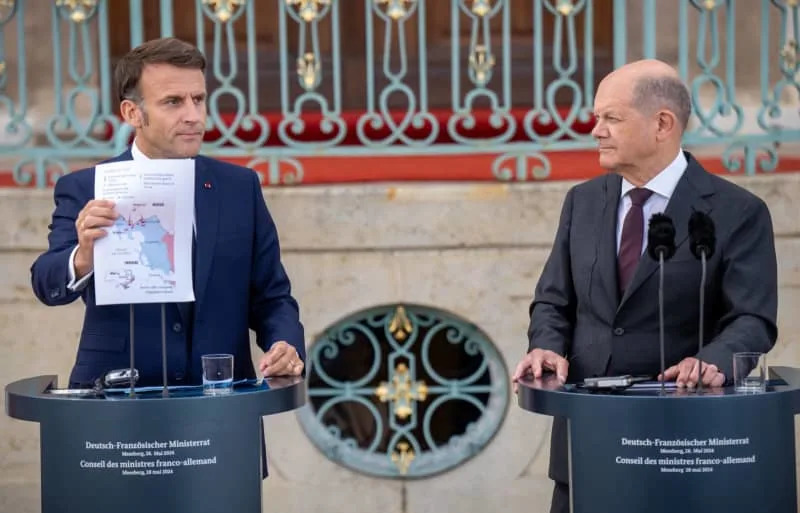
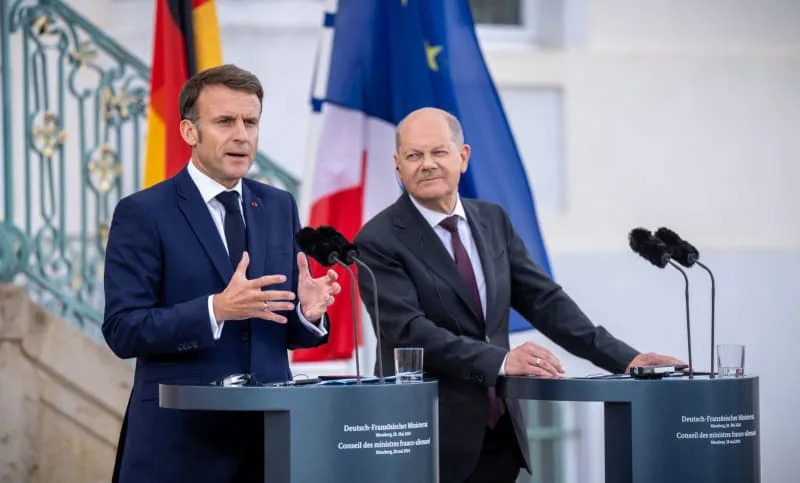
AfriPrime App link: Absolutely risk free and FREE for download...



